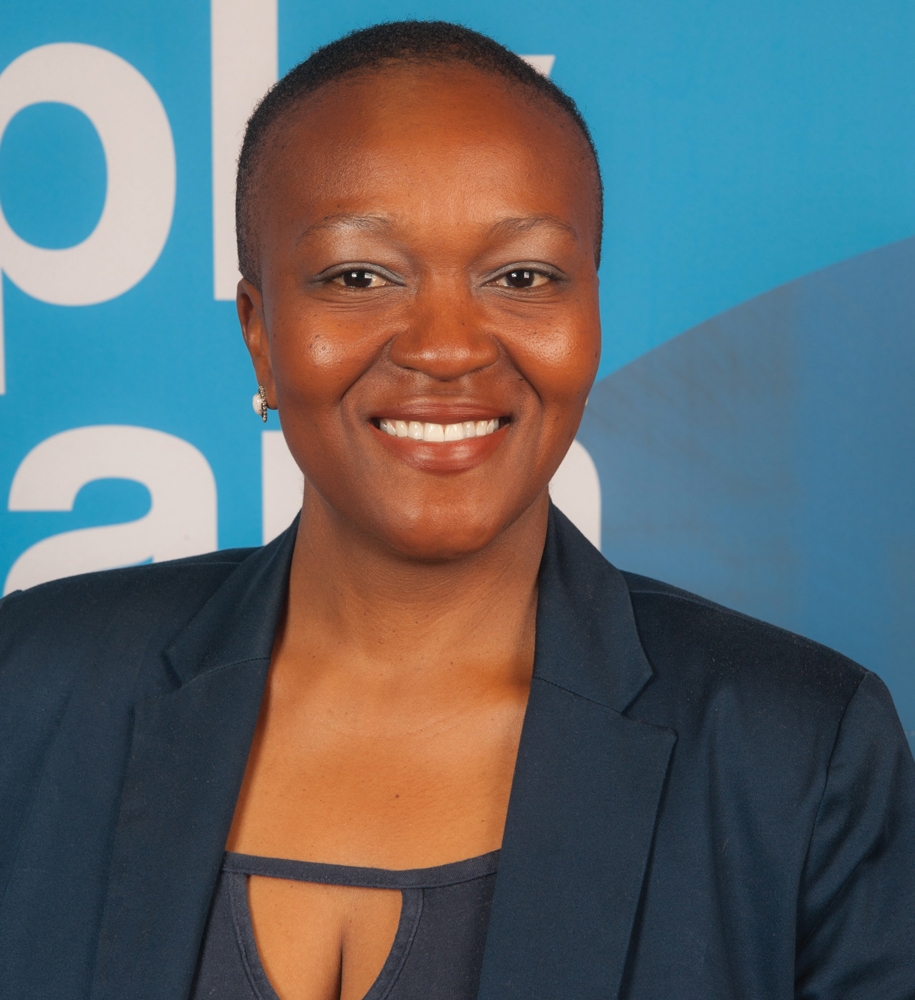Let’s hear it for the ladies! Part 3
Let’s hear it for the ladies! Part 3
The transport and logistics game never used to be populated by members of the fairer sex. However, this has changed. CHARLEEN CLARKE pays tribute to some of the leading ladies in the transport and logistics industry and the trailblazers in supply chain management.
Dr Anna Mokgokong, chairman of Community Investment Holdings
Mokgokong, a medical doctor by training, is tasked with leading the board of Community Investment Holdings – a shareholder in Crossroads, Larimar (Putco) and the VME Group – formulating policy, overseeing its implementation as well as corporate governance and new business development.
Mokgokong has been in the transport industry for over two decades, and she’s seen considerable change in what was a male-dominated industry. “I do believe it is more conducive [to women] now than ever before, but we need to open up more to enable more women to come in at leadership positions as well as from a business aspect. The patriarchal society is the main inhibitor,” she maintains.

Mokgokong believes that more women are needed in the commercial vehicle industry. “We need to reach gender equality in all opportunities that are available in our country including the mainstream economy in this sector.”
She encourages women to form partnerships and to join associations that can be used as a platform for that voice that will reverberate in the corridors as well as influence policy and power. “One single voice cannot do it. We need to engage policy-makers and decision-makers to take the plight of women more seriously,” she says.
Kearabetswe Nkwane, asset planner at Syngenta South Africa
Nkwane joined the supply chain profession as a graduate at Massmart, on the company’s graduate development programme, in 2009. The SCM world was completely new to her. “I was straight out of university, with no exposure, no experience. I didn’t even know about SCM back then,” she says with a chuckle.
Since then, she has really made her mark on the field. She has been an active member of the organisation for a number of years and is APICS CPIM and CSCP certified. She has won the Brain of the ASCA Nation not once but twice! (This is a fun collaboration between SAPICS and Smart Procurement featuring a quiz covering a broad spectrum of SCM and some challenging general knowledge questions on Africa.)
Her current status has been a long time coming. “It’s been a long journey from graduate programmes to taking on in-store roles and learning on the ground and behind the scenes in FMCG. I started at Massmart as a graduate trainee and moved into their stores as a merchandise controller. I went to Pick n Pay as an inventory manager, then Edcon as an assistant planner. After that, I was a supply chain planner at Avon for a few years and now I’m at Syngenta South Africa.”
She loves her job. “In my current role I’m responsible for the planning and purchasing of materials used in production. The weekly production planning and scheduling afforded great opportunities to work with driven individuals and learn some critical skills along the way. My current position is something that I’ve aimed towards, that will elevate me in the direction I seek now, in manufacturing and SCM,” she explains.
Nkwane believes that the SCM landscape has changed quite dramatically. “Ten years ago, there was no focus on SCM, no in-depth structures and knowledge, it was mostly just another department in any company. SCM is no longer a solo department; it requires interaction with others company-wide. Today there is more awareness of the difference SCM can make and how it impacts economies. It is not just another cost centre.”

While Nkwane believes that the industry is more accepting of women in leadership positions today, she says we still have a long way to go. “Women have proved that they are able, and have always been able to lead companies, and drive growth, not just for themselves but for others as well. The advantage women have is that they are intuitive, nurturing and good at multitasking. Those are good characteristics, as they provide an edge in leadership. Acceptance of women in leadership is there and it’s growing; the difference is providing the opportunities, not just in terms of diversity and inclusion. I would like to see more companies providing supportive career progressions for women in SCM, because we are capable,” she stresses.
As we come out of the pandemic, Nkwane believes that we have much to look forward to. “A lot has already changed and is yet to change, and I’m excited about the new normal future that we may see. I’m optimistic about new processes and technologies that may change the way we work, the way we interact with others and the way we make decisions that affect the supply chain. The supply chain landscape will change for the better, I believe, as we are forced to adapt more quickly to changes, start taking a closer look at risks in the supply chain and their effects, and the focus on the customer will be bigger than ever.”
Nkwane believes that we need more women in SCM. “I would like to see companies being more supportive of women in SCM and providing them with opportunities to add value, drive performance and boost profitability. Women bring different strengths to the table compared with men, and this can be an advantage to any company. There isn’t a limit anymore on gender-specific roles.”
Finally, any words of advice for young women thinking about a career in SCM? “Careers don’t start and end with the usual offerings from universities. Not everyone is meant to be an engineer, a doctor or a policewoman. SCM has so many offerings, and the opportunities have no limits. The industry is expanding, at a dramatic rate, and it is being recognised worldwide. The skills gap in SCM is slowly being eradicated and that is a positive step, especially for women. In SCM you have the opportunity to change lives, to add value and to have an awesome career at the same time.”
Keabetswe Mpane, global supply chain advisor and influencer, past president of SAPICS
While Mpane qualified as an industrial engineer and started her career in the railways, she’s always been passionate about SCM. And she boasts an undeniably impressive CV that covers various roles across multiple industries in her 22-year career.
“I started as a technician and – at only 21 years of age – I was appointed as a junior manager, responsible for a team of industrial engineers, technicians and administrators in the productivity improvement department of the then Spoornet, now Transnet Freight Rail. I progressed to the motor industry in the planning and logistics unit of BMW SA at the Rosslyn plant,” she says.
Thereafter, she joined the manufacturing and maintenance division of Transnet (being Transnet Rail Engineering), heading the logistics and distribution function for close to 11 years. “The complexity and sheer magnitude of the job was a notable career highlight. I was overseeing over 1 200 people across 138 plants and to a large extent, that is what ignited my passion for SCM.”
More recently, she was charged with group-wide procurement at the Passenger Rail Agency of South Africa as group chief procurement officer. “There, I was confronted with the mammoth task of instilling effective processes and procedures in an effort to counterbalance historical maladministration.”
Since then, she’s joined Emissary UK as a global supply chain advisor and she consults for various other organisations. “Emissary Advisory seeks to bridge the gap between those who are seeking knowledge and those who possess it. Emissaries, as we are referred to, believe that people are the most important assets available,” she explains.
Mpane believes that the SCM landscape today is vastly different from 22 years ago. “There has been an ongoing rapid evolution and conversion from production and inventory, transport and Logistics and purchasing over the years to what we now comprehend the industry to be. When I first started, supply chains in organisations were primarily designed for cost-efficiency. The challenge today is to find new trade-offs between cost, speed, and service in a changing landscape where uncertainty and higher customer expectations go hand in hand.
“Looking back from those seminal years, we must also appreciate the extent to which SCM as a discipline now cuts across the entire business value chain. If you were to consider the flow from raw materials through to suppliers, manufacturers, distribution, retailers up to the customer, balancing with the flow of products, revenue, profit, cost, information, environmental impact, and ethical costs – a lot has certainly changed,” she believes.

The gender profile of the industry has changed too. “The number of women in leadership positions is on the rise, albeit at a snail’s pace. The industry is advancing on diversity, equity and inclusion targeted at women. There is still a lot of hard work to be done. Looking at the current composition of boards, executive directorship and women supply chain executives at the JSE-listed companies, even just the public sector, after 27 years of democracy in our country you can indeed see that we need more players in this space. We have not been deliberate enough with our intentions to advance women. We need more women to enter this largely male-dominated space.
“Astute and resilient women tend to be suppressed as they are seen as threats rather than organisational enablers by male counterparts, especially in the public sector,” she notes.
Mpane believes that it is important to attract, develop and retain women in supply chain leadership. “This can be achieved by establishing integrated pipeline planning processes to ensure that women reach the top ranks. We need to support and prioritise meaningful initiatives to improve women representation rather than solely rely on affirmative action tokens. Women must also be present and show up and not feel entitled to any leadership advancements.”
She says that young women thinking about a career in SCM need to be visible. “Fully empower yourself to be the best practitioner possible, but most importantly remain ethical, humble and purposeful. Get yourself a life coach and leverage on a pool of mentors for every aspect of your being. These trailblazers have a depth of experience and wisdom to direct your journey. Lastly, develop others. You cannot just expect to receive and not plough back.”
Published by
Charleen Clarke
focusmagsa




